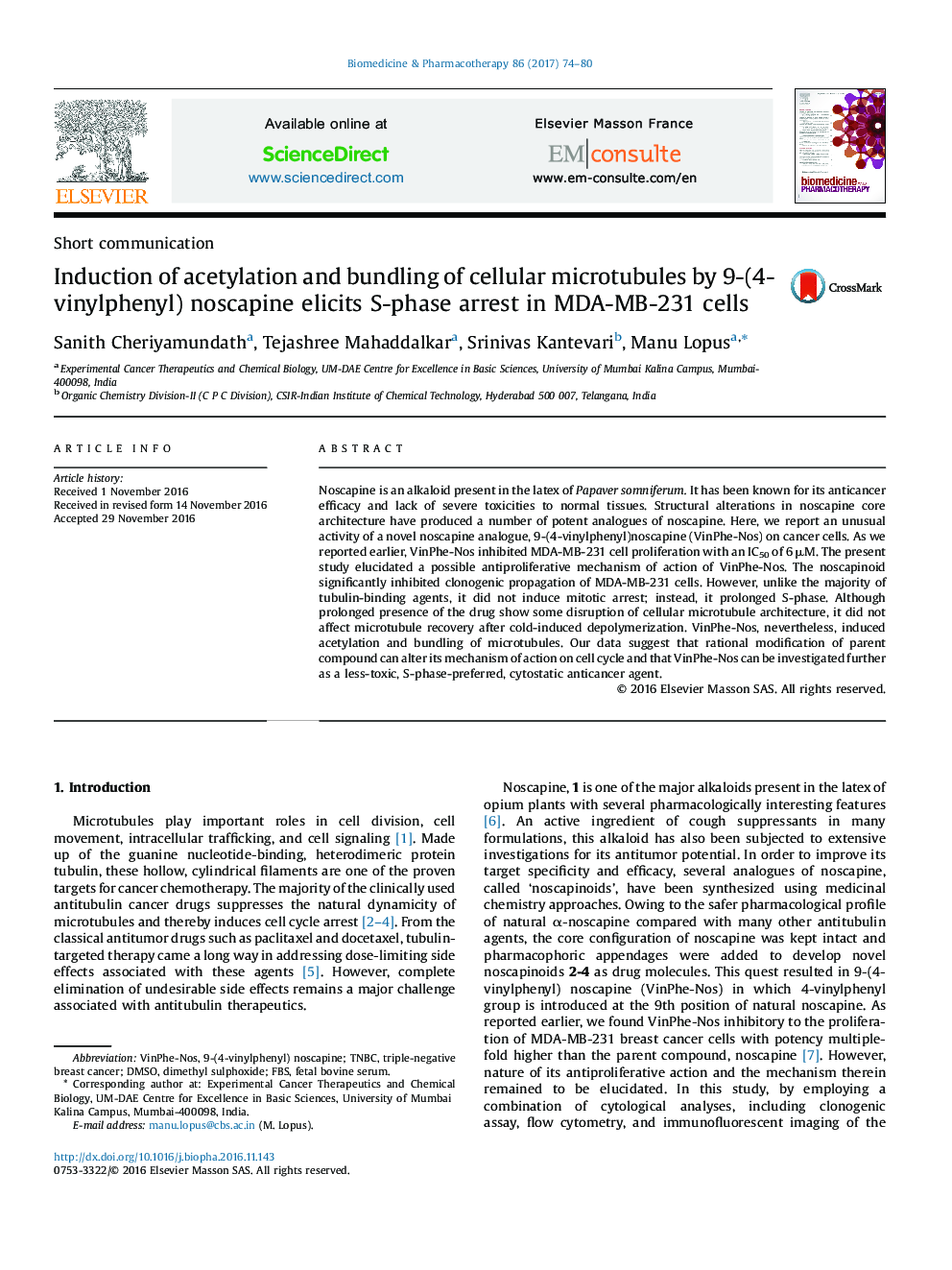| Article ID | Journal | Published Year | Pages | File Type |
|---|---|---|---|---|
| 5553591 | Biomedicine & Pharmacotherapy | 2017 | 7 Pages |
Noscapine is an alkaloid present in the latex of Papaver somniferum. It has been known for its anticancer efficacy and lack of severe toxicities to normal tissues. Structural alterations in noscapine core architecture have produced a number of potent analogues of noscapine. Here, we report an unusual activity of a novel noscapine analogue, 9-(4-vinylphenyl)noscapine (VinPhe-Nos) on cancer cells. As we reported earlier, VinPhe-Nos inhibited MDA-MB-231 cell proliferation with an IC50 of 6 μM. The present study elucidated a possible antiproliferative mechanism of action of VinPhe-Nos. The noscapinoid significantly inhibited clonogenic propagation of MDA-MB-231 cells. However, unlike the majority of tubulin-binding agents, it did not induce mitotic arrest; instead, it prolonged S-phase. Although prolonged presence of the drug show some disruption of cellular microtubule architecture, it did not affect microtubule recovery after cold-induced depolymerization. VinPhe-Nos, nevertheless, induced acetylation and bundling of microtubules. Our data suggest that rational modification of parent compound can alter its mechanism of action on cell cycle and that VinPhe-Nos can be investigated further as a less-toxic, S-phase-preferred, cytostatic anticancer agent.
